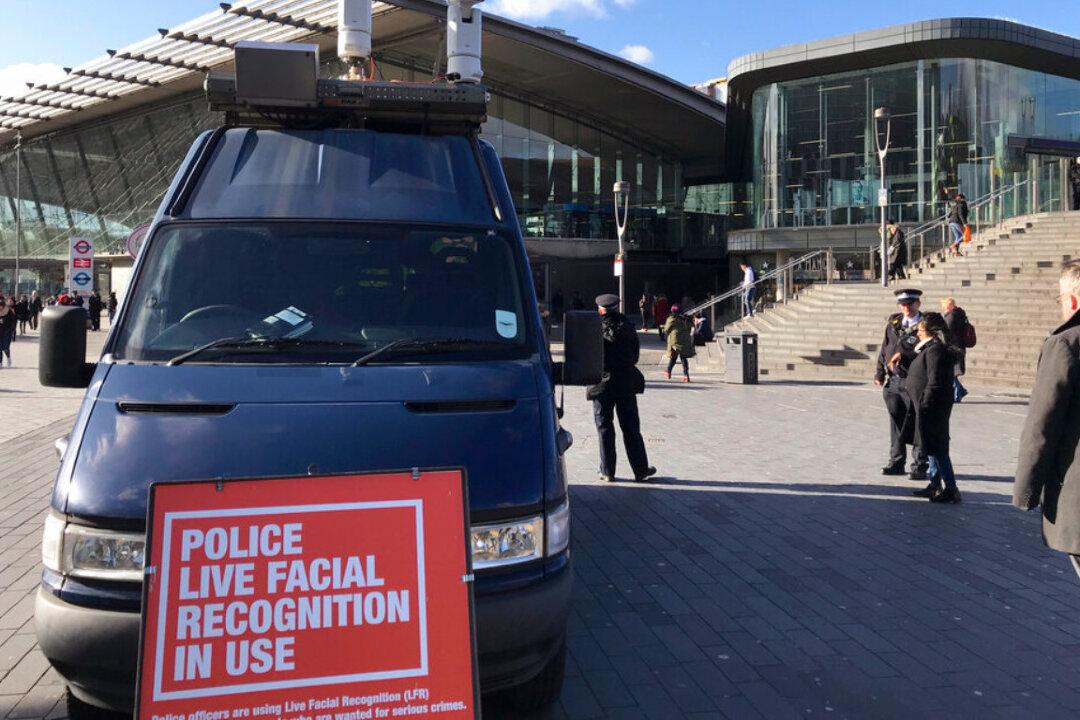Civil liberties groups have criticised new UK police guidance that could place innocent people on facial recognition systems watchlists.
The College of Policing published a guide for officers in England and Wales on Tuesday, which they said was to ensure the use of live facial recognition technology is “legal and ethical.”





